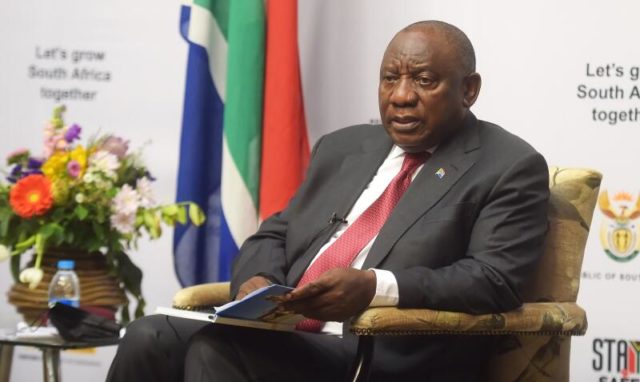North West University energy expert Professor Frik van Niekerk said the move to introduce more players in energy generation was in line with the practices of modern economies.
A LABOUR federation has questioned President Cyril Ramaphosa’s plan to introduce the private sector in energy generation, saying the move had been hatched years ago as a way of privatising electricity supply in the country.
While Cosatu was lukewarm on Ramaphosa’s plan, the SA Federation of Trade Unions (Saftu) has vehemently opposed it, saying it carried the risk of making electricity unaffordable.
However, energy experts have welcomed Monday’s announcement, insisting that it had the potential to end the country’s energy woes.
North West University energy expert Professor Frik Van Niekerk said the move to introduce more players in energy generation was in line with the practices of modern economies.
“This is what many people in the energy sector have been calling for, the involvement of other role-players will ease the pressure on Eskom, enabling the power utility to attend to its capacity challenges,” said Van Niekerk.
In his Monday night address, Ramaphosa indicated that the government had consulted widely in a bid to get the buy-in from different role-players in a bid to solve the country’s energy challenges, citing labour, the private sector and political parties among the stakeholders consulted. Ramaphosa’s plan also included the following:
- Improving the performance of Eskom’s existing fleet of power stations.
- Accelerating the procurement of new capacity from renewables, gas and battery storage.
- Increasing private investment in generation capacity.
- Enabling businesses and households to invest in rooftop solar.
- Fundamentally transforming the electricity sector and positioning it for future sustainability.
He said while South Africa had installed capacity to produce about 46,000 megawatts (MW) of electricity, and at peak times the country used about 32,000MW of electricity, only 60% of this installed capacity was available at any given time due to some units going through planned maintenance and others having unplanned outages.
This, he pointed out, was because many power stations were built many years ago, with many averaging 35 years and as power stations got older, their performance deteriorated.
Saftu secretary-general Zwelinzima Vavi refuted claims of consultation between the government and labour.
“We want to state upfront that Saftu was not consulted by the government. In fact Saftu – like many other working-class formations rooted in working class communities have never been consulted on state policy, even during the period of the coronavirus pandemic,” said Vavi.
Vavi said the intended move was in line with privatising energy supply by the government which had been hatched years ago.
He said government ignored warnings which were issued as early as 1997 by Eskom executives and many other experts about apartheid’s ageing infrastructure that needed refurbishing in order to avoid load shedding.
He cautioned against excitement over the involvement of households in energy generation, saying this would exclude many communities.
“We are worried that only wealthier households will have the capital resources – typically more than R150,000 for a standard 60-ampere connection – to do so and they will therefore escape the necessary cross-subsidisation that the world’s most unequal country needs.
“We, more than anyone else, are desperate to end load-shedding. But under the current Eskom management, load shedding may one day end, but the prices of electricity will be subjected to the rules of profit maximisation,” Vavi said, adding that Eskom used to export, and not import electricity.
Cosatu spokesperson Sizwe Pamla said they had noted the president’s message but would comment further once it was rolled out.
The Growth Coalition’s Moses Tembe said they welcomed the plan and the spirit in which it had been presented. He stressed though that they wanted to see the swift implementation of the plan.
“Business is no longer interested in what the government says, but more about what it does and the pace in which this is done,” said Tembe.
He said business was encouraged by the inclusion of households, along with the private sector in energy generation, and the minimal involvement by the government. “We have always contended that the government cannot be a player and the referee, but should be a regulating authority,” Tembe said.
An energy expert from the University of KwaZulu-Natal, Dr Andrew Swanson, agreed that the move for more players was long overdue. “I think it is good that there will be more power producers in the market. He indicated that more capacity and more power in the system was needed.
“What is also important is the energy mix between renewables which can be variable and the conventional power generation (the coal-fired plants) which is more stable. The more renewables that come onto the power network, the more the need for flexible ‘sources’ and this is where the battery storage systems can come in,” said Swanson.
He added that commercial and residential installations on the network were important as this could see the country having an energy surplus, as opposed to a shortage.








